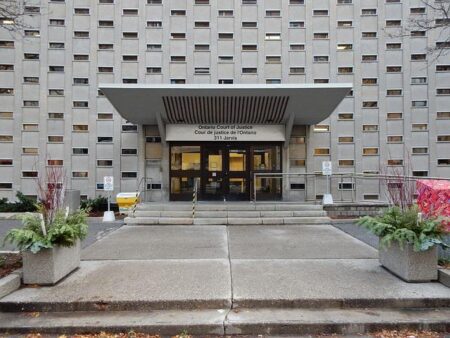Coca-Cola has announced a new partnership with the PGA TOUR to launch the HBCU Golf Impact Grant, a transformative initiative aimed at supporting Historically Black Colleges and Universities’ golf programs. This collaboration seeks to foster diversity and inclusion within the sport by providing vital resources and opportunities for HBCU student-athletes. The grant underscores both organizations’ commitment to growing the game of golf while promoting educational and athletic advancement in underrepresented communities.
Coca-Cola and PGA TOUR Launch Innovative HBCU Golf Impact Grant to Foster Diversity and Opportunity
In a groundbreaking initiative to promote inclusivity within the sport, Coca-Cola and the PGA TOUR have unveiled the HBCU Golf Impact Grant. This collaborative effort is designed to provide Historically Black Colleges and Universities (HBCUs) with resources to develop golf programs, increase participation, and nurture the next generation of diverse golf talent. The grant targets not only equipment and facility improvements but also scholarships, coaching education, and tournament support, marking a significant step toward leveling the playing field in collegiate golf.
Key components of the HBCU Golf Impact Grant include:
- Financial support for student-athletes pursuing golf scholarships
- Coaching clinics that enhance skill-building and mentorship
- Facility upgrades to ensure competitive practice environments
- Community outreach programs aimed at expanding golf access and awareness
With this partnership, Coca-Cola and the PGA TOUR are setting a new standard for diversity initiatives in sports, fostering opportunity where it has been limited and igniting passion for golf among underrepresented college communities.
Strategic Recommendations for Maximizing HBCU Engagement and Long-Term Growth in Golf Programs
Amplifying partnerships with local HBCUs and community leaders is essential to foster sustained interest and participation in golf. Programs should capitalize on Coca-Cola and the PGA TOUR’s collaboration by creating immersive experiences such as clinics, mentorships, and scholarship opportunities. This approach extends beyond mere funding, nurturing a network of advocates committed to enhancing accessibility and representation in the sport. Additionally, investing in marketing campaigns tailored to resonate with HBCU student bodies will enhance visibility, driving engagement on campus and converting casual interest into long-term program commitment.
To ensure scalable growth, institutions must emphasize infrastructure development alongside talent cultivation. This includes upgrading facilities, procuring quality equipment, and integrating technology for training and performance analysis. A strategic resource allocation plan can be visualized as follows:
| Focus Area | Priority Level | Key Outcome |
|---|---|---|
| Facility Improvement | High | Safer, accessible practice environments |
| Community Outreach Programs | Medium | Expanded recruitment pipeline |
| Technology & Analytics | Medium | Enhanced player development |
Finally, **measuring Finally, measuring program impact through data-driven metrics is crucial to understand progress and identify areas for improvement. Institutions should track participation rates, retention, player performance, and community engagement levels over time. Regularly reviewing this data will enable program leaders to make informed decisions, optimize resource distribution, and demonstrate program success to stakeholders and sponsors.
In summary, a comprehensive approach that combines strong partnerships with HBCUs and community leaders, strategic investment in infrastructure, and ongoing impact assessment will drive sustainable growth and greater inclusion in golf. This approach not only nurtures talent but also builds a supportive ecosystem that encourages lifelong engagement with the sport.
Final Thoughts
Coca-Cola’s collaboration with the PGA TOUR through the new HBCU Golf Impact Grant marks a significant step toward expanding diversity and opportunity within the sport of golf. By investing in Historically Black Colleges and Universities, this partnership aims to foster talent, provide valuable resources, and create pathways for aspiring golfers from underrepresented communities. As both organizations join forces to promote inclusivity, the initiative reflects a broader commitment to shaping the future of golf and ensuring the game is accessible to all. Moving forward, stakeholders will be closely watching how the grant impacts HBCU golf programs and contributes to the growth of the sport nationwide.








